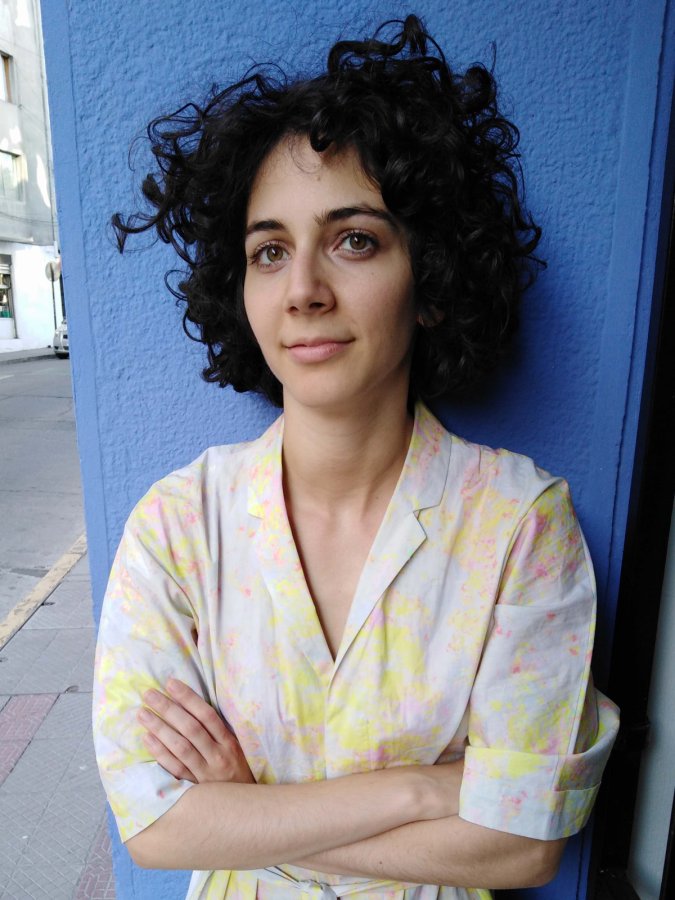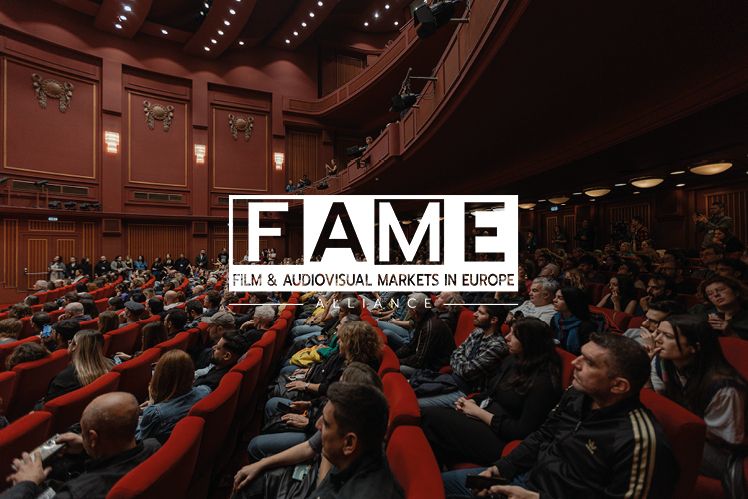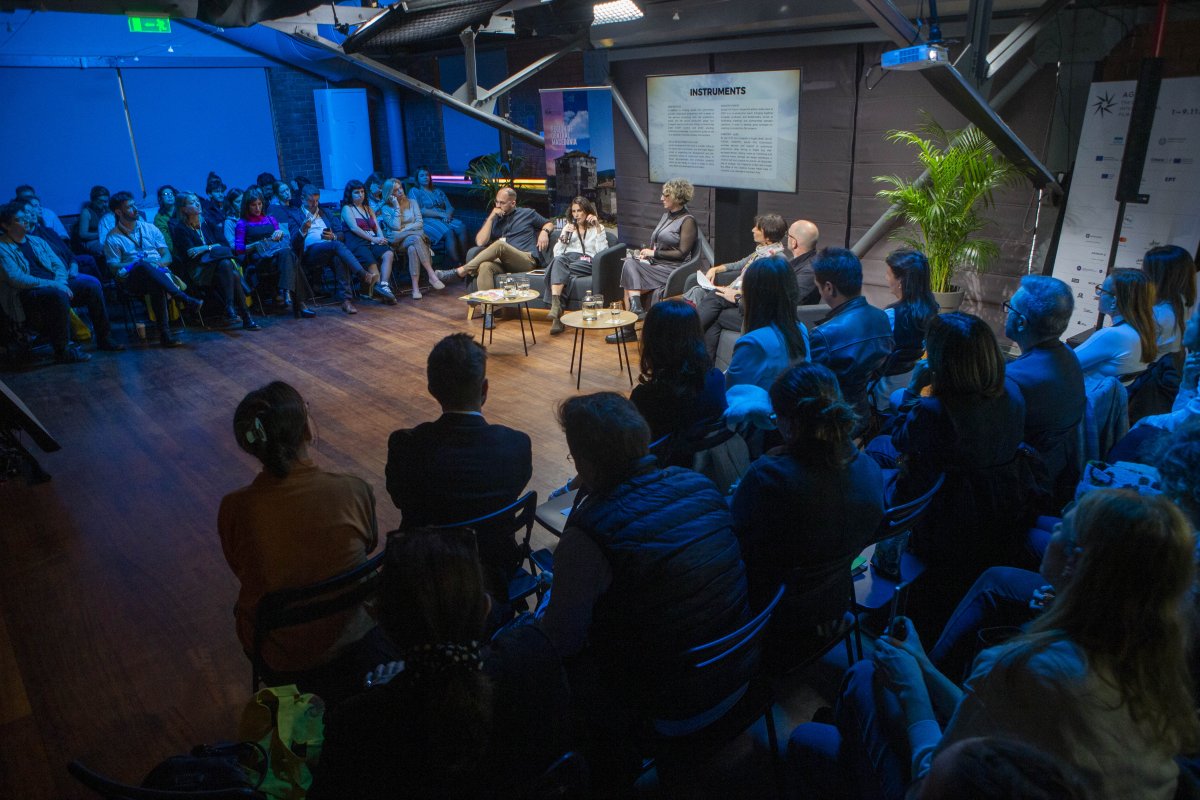An open discussion about the “Ethical dilemmas in the making of documentaries” was carried out on Thursday March 9th, at the Pavlos Zannas theater in Olympion, within the framework of the 25th Thessaloniki Documentary Festival. Five Greek documentary directors shared their experiences and thoughts on the ethical dilemmas they have faced while making their films, showcasing clips from their own works. More specifically, the discussion’s main speakers were Marianna Economou, Marco Gastine, Katerina Patroni, Stavros Psillakis, and Kimon Tsakiris, and was moderated by Apostolos Karakasis, director and professor of the AUTH Film School.
Apostolos Karakasis initially took the floor: “On stage, we have some of the greatest documentary filmmakers in Greece. Their work is too big and our time too limited to have a separate introduction for each one. The topic of our discussion is important to every documentary filmmaker. The ethical dilemmas that occur have a practical aspect. What am I filming and what do I keep during editing, are some of the questions relevant to us. Therefore, this is not a theoretical discussion, but there are practical confrontations as well. Before we begin, I would like to mention that the Festival began this year with a grieving shadow over the atmosphere, after the terrifying tragedy at Tempi, while yesterday this grief expanded with the loss of our dear teacher, Lakis Papastathis. He was a Greek documentary pioneer and directed the historic TV show Paraskinio with Takis Chatzopoulos, which hosted more than two hundred artists. Lakis had a vast passion and knowledge about Greek art. He had his feet on the ground but at the same time he lived in a galaxy where one could find every star of modern Greek art. Now he has gone to meet them. We dedicate today’s talk to him”.
The talk began after the screening of a clip from the film The Fourth Character by Katerina Patroni. The director spoke initially also of the late Lakis Papastathis. “His gaze on both the world and film will be deeply missed, as will his words. As for the clip we watched, the protagonist is Pavlos, one of the three characters of the film. He is someone who wished to get close to God. I chose him because of this deep desire of his and I was wondering how I could protect him in the film so that I do not depict him as someone to be mocked. Of course, my target audience is people who do not reject the concept of religion and God. I don’t care for the documentary to document. As a filmmaker, I like to look for the meaning of things. For me, there is no unholy place and I don’t believe I mislead the audience. What’s important to me is for a certain truth to be emerging, even if it may be impossible for it to be documented”.
According to Marianna Economou: “When you enter the world of documentary, you need to solve ethical dilemmas that relate equally to your characters and your own self. The ethical dilemma is firstly about the person you have in front of you and then about your audience”. As Kimon Tsakiris explained: “Besides our inner morality, we get in touch with the external morality of our surroundings. For instance, we are at a pitch and we want to present a documentary about a little child who lost all their family and we promise, in order to get funding, that in the end we will make this child cry. For me, something like this is appalling. This industry has a lot of traps and we need to be careful so as to not emotionally manipulate the audience. Our morals are not defined by our first documentary. We also change as we grow. As I mentioned, apart from our inner morality, there is also the external one, which we cannot avoid”.
Then, an excerpt from Mr. Tsakiris’ film, The Invisible Wall, was screened. “The story takes place in Agathonisi in 2009 before the refugee crisis. I didn’t want to make a documentary about refugees that is dependent on emotion. In this little port, everyone lives in their own world. There is not one and only reality. You need to look for the truth. The search for the truth is for me the basis of all morality”. To the question about whether he would ever film someone he felt no empathy for, Marco Gastine mentioned: “I have filmed many such people. Such as the Golden Dawn for instance. The issue of morality is personal. There are red lines I will not cross. You don’t want to violate your character, hurt them in any way or take advantage of their innocence. I always ask for my protagonist’s consent. We make documentaries to tell stories we see in real life”.
Moving on, a clip from the film Demokratia, the Way of the Cross by Mr. Gastine was screened. According to the director: “It is a collective film by five directors, and together we filmed five parliamentary candidates for the 2012 elections. I had no access to the Golden Dawn. Journalist Nikolia Apostolou helped me. In the observational documentary we made, there was no commenting. Besides, the ideas of Ilias Panagiotaros were so evil that no propaganda was necessary”.
Soon after, a clip from the film The Longest Run by Marianna Economou was screened. “I started this film in 2015. Then, I heard a story about underage children trying to cross the border. There, they are captured, put to a prison for underage children and then they are forgotten, abandoned at the mercy of justice. Access to the prison was very restricted, I had only ten days. I didn’t know these characters and when I chose them, I began to watch them. They were two utterly vulnerable creatures. I didn’t know how to face them and there were a lot of issues I had to deal with. A give-and-take relationship developed between us. They were using me as well, under the condition that they may have had a more favorable position in the face of justice. I knew that the filter of morality was the editing process. The reason I made this film is because of the injustice I felt. I was on the side of the children and their story was about the violation of human rights”.
Then, a segment from the documentary There Was No Other Way by Stavros Psillakis was screened. As the director explained: “Documentary is for me a fiction film, only made on different terms. I will say three phrases/quotes that confirm this. “What I describe, describes me”, “we say the truth we can say” and “there are no facts, only interpretations of facts”. Every person sheds light on the same event in different ways. All the dilemmas mentioned by my colleagues, I have also faced. I never make a film about anything I am not interested in. I don’t make documentaries to condemn or fix something. This is not my intention. As for the film, it all began after an idea/suggestion by my friend Matthaios Frantzeskakis, in 2005. He recommended the book There Was No Other Way by N. & A. Kokovlis. I had heard about these people’s existence, but after I read the book, I realized the magnitude of the story”.
“Documentary for me is revealing reality. I watch a lot of documentaries that lie. So, our job is to reveal the truth. It is dangerous to say that documentaries are fiction. I am a conscious person, but when I make a documentary, I know nothing, I take my glasses off. Also, you need to protect your colleagues,” Mr. Gastine commented. As for whether filmmakers turn off the camera at the right time, Apostolos Karakasis responded: “I have filmed people without them knowing, I have placed a hidden camera, I have generally provoked situations”. “I have regretted not letting the camera record on many occasions,” he mentioned. “I turned it off when there was a lot of emotion so that my protagonists wouldn’t feel bad. I no longer do that”, Ms. Economou stressed and Ms. Patroni agreed, by adding: “I have regretted one scene from the film Men at Sea and my sailor protagonist, Nikos. I caught him in a moment when he was drunk, but aware of what he was doing, and as soon as the “girls” boarded the ship, he acted in a weird way. I didn’t want to expose him although he never asked me to stop filming. I probably wouldn’t do this today, I wouldn’t have stopped the camera. It’s a scene I think about constantly”.
To an audience question about whether animation could be included in the documentary genre, Mr. Gastine mentioned: “I have used animation in a film I made about a tetraplegic child. There was footage from the day of the accident, where a dive in the sea amongst friends resulted in him breaking his neck. Because his parents had not watched it and it would be vulgar to present it in this way, animation was the appropriate solution. He himself recalled a conversation he had with his son when he was nine years old. “He mentioned to me that he doesn’t like documentaries. As he said, in films there is a problem and by the end the protagonist has found a solution. In documentaries we have a protagonist, but the problem remains unsolved until the very end”.
















